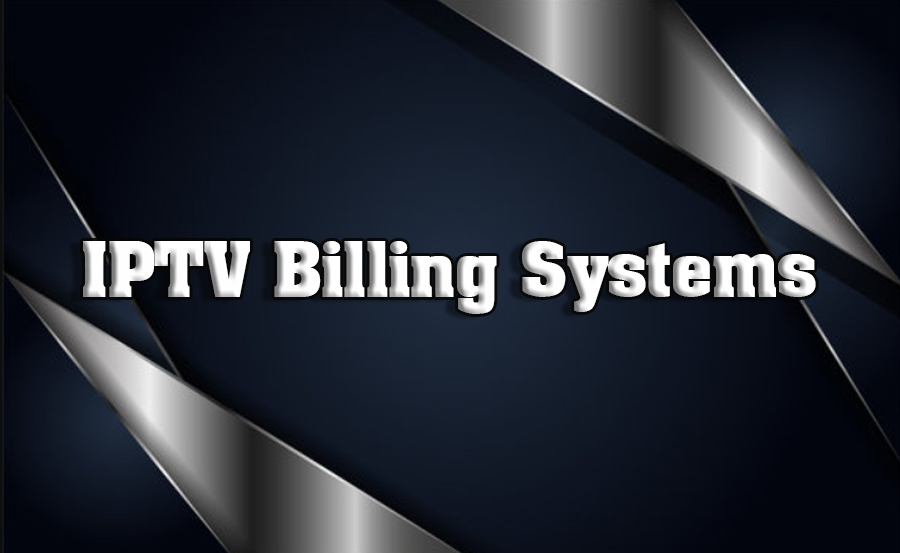In the competitive and ever-evolving world of Internet Protocol Television (IPTV), efficient billing systems are pivotal for service providers to manage subscriptions, ensure seamless revenue flow, and maintain customer satisfaction. An IPTV billing system is more than just a tool for invoicing; it is the backbone that supports the financial operations of IPTV services, enabling providers to offer flexible payment models, track user activity, and implement effective monetization strategies. This article delves into the essential components, functionalities, and benefits of IPTV billing systems, providing a comprehensive understanding for both service providers and industry enthusiasts.
Buy 1 Year IPTV and Enjoy Unlimited Content
What is an IPTV Billing System?
An IPTV billing system is a software solution designed to handle the financial transactions and subscription management for IPTV services. It automates the entire billing process, from customer registration and subscription plans to payment processing and invoice generation. By integrating seamlessly with other IPTV components, such as content management systems (CMS) and customer relationship management (CRM) tools, the billing system ensures a smooth and efficient operational workflow.
Core Components of IPTV Billing Systems
- Subscription Management
- Plan Configuration: Allows providers to create and manage various subscription tiers, including basic, premium, and customizable packages.
- User Registration: Facilitates the onboarding of new customers by capturing essential information and setting up their accounts.
- Payment Processing
- Multiple Payment Gateways: Supports a variety of payment methods, including credit/debit cards, digital wallets, and bank transfers, ensuring flexibility for users.
- Automated Billing Cycles: Manages recurring payments, renewals, and one-time transactions with minimal manual intervention.
- Invoicing and Receipts
- Automated Invoice Generation: Creates detailed invoices based on the user’s subscription plan and usage, ensuring accuracy and consistency.
- Digital Receipts: Provides customers with electronic receipts for their transactions, enhancing transparency and trust.
- Dunning Management
- Payment Reminders: Sends automated notifications to users about upcoming or overdue payments, reducing the risk of churn.
- Retry Mechanisms: Attempts to collect failed payments through multiple retries, improving revenue recovery rates.
- Reporting and Analytics
- Financial Reports: Generates comprehensive reports on revenue, outstanding payments, and subscription trends, aiding in strategic decision-making.
- User Insights: Analyzes user behavior and payment patterns to identify opportunities for upselling and improving customer retention.
- Security and Compliance
- Data Encryption: Ensures that sensitive financial and personal data is protected against unauthorized access.
- Regulatory Compliance: Adheres to industry standards and regulations, such as PCI-DSS, to maintain legal and financial integrity.
Smart IPTV App: How to Set Up and Optimize Your Streaming
Benefits of Implementing an IPTV Billing System
- Efficiency and Automation: Streamlines the billing process by automating repetitive tasks, reducing the need for manual intervention, and minimizing human errors.
- Scalability: Accommodates the growth of the subscriber base without compromising performance, allowing providers to expand their services seamlessly.
- Enhanced Customer Experience: Offers flexible payment options, transparent invoicing, and timely notifications, contributing to higher customer satisfaction and loyalty.
- Revenue Optimization: Facilitates effective monetization through various subscription models, upselling opportunities, and efficient payment collection.
- Data-Driven Decisions: Provides valuable insights through detailed analytics, enabling providers to make informed decisions about pricing strategies and service offerings.
Challenges in IPTV Billing Systems
- Integration Complexity: Ensuring seamless integration with existing IPTV infrastructure, including CMS and CRM systems, can be technically challenging.
- Security Risks: Protecting against data breaches and ensuring compliance with financial regulations requires robust security measures.
- Customer Support: Managing billing inquiries and resolving payment issues promptly is essential for maintaining customer trust and satisfaction.
- Adaptability: Keeping up with evolving payment technologies and consumer preferences necessitates continuous updates and improvements to the billing system.order IPTV
Future Trends in IPTV Billing Systems
The future of IPTV billing systems is poised to embrace advancements such as:
- Artificial Intelligence (AI): Leveraging AI for predictive analytics, personalized billing experiences, and automated customer support.
- Blockchain Technology: Enhancing transaction security and transparency through decentralized ledger systems.
- Mobile Payments: Increasing support for mobile payment solutions to cater to the growing number of users who prefer using smartphones for transactions.
- Subscription Flexibility: Offering more customizable and flexible subscription models to meet diverse consumer needs and preferences.Shared vs Dedicated Bandwidth: Best for IPTV
Conclusion
Understanding and implementing an effective IPTV billing system is crucial for service providers aiming to deliver reliable and user-friendly television services. By automating billing processes, enhancing security, and providing valuable insights, IPTV billing systems not only streamline financial operations but also contribute to overall business growth and customer satisfaction. As the IPTV landscape continues to evolve, staying abreast of the latest billing technologies and trends will be essential for maintaining a competitive edge and ensuring long-term success in the digital broadcasting arena.

